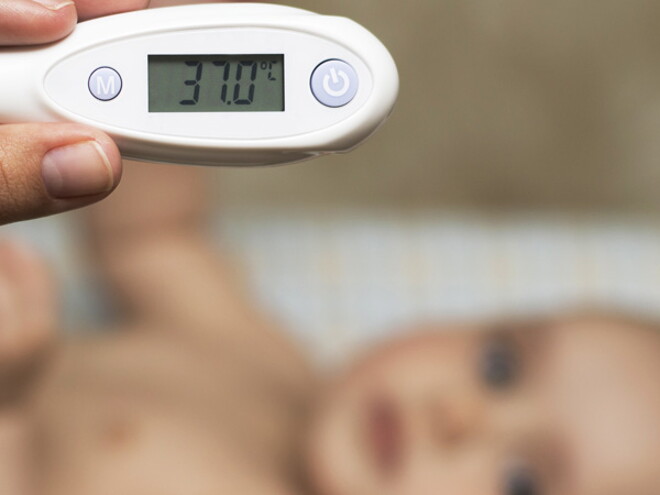
Baby Fever
When your baby has a fever it is always a concern but rarely a cause for panic. Fever is a symptom that occurs when our bodies are fighting an unwanted inruder, like bacteria or a virus.
What is a fever?
Fever gives the body’s immune system a helping hand by stopping the replication of bacteria but when it occurs in your baby it can lead to adverse reactions such as convulsions and dehydration.
The normal temperature range for your baby is between 36 – 37°C but this can vary depending on where and when the temperature is taken – anal (professional use only), underarm and ear are the most accurate although forehead is the easiest. Above 37.5°C is considered a fever but it is not necessarily a dangerous level. It is common for fevers to spike in the evening and be lower in the mornings. Fever in your baby is not a concern they are still eating, drinking and playing happily. They may just be a bit whingy and clingy but if you are at all concerned you should see your doctor. If your baby has a fever over 40°C or the fever has remained over 38°C for three or four days, definitely seek professional medical advice.
Febrile convulsion
The rapid rise and fall of your baby’s body temperature can trigger a fit or what is known as a febrile convulsion. Seek professional help if this happens to your baby.
How can you help your baby?
When your baby has a fever it is important to keep them cool, calm and hydrated. Provide them with opportunities of quiet play, rest, regular drinks of breastmilk and water. Avoid dressing them in too many layers of clothes as exposed skin helps the body to cool. Use tepid water (not hot or cold) when bathing as cold bath water can cause a rapid drop in body temperature – risking a febrile convulsion. Keep windows slightly open to allow fresh air to circulate or have a fan going.
Take your baby for a professional medical assessment if they have a fever plus any of the following:
- a high pitched scream;
- is lethargic;
- is reluctant to breastfeed;
- has an unusual rash;
- their condition is deteriorating in any way;
- Or if you just feel you should.




















